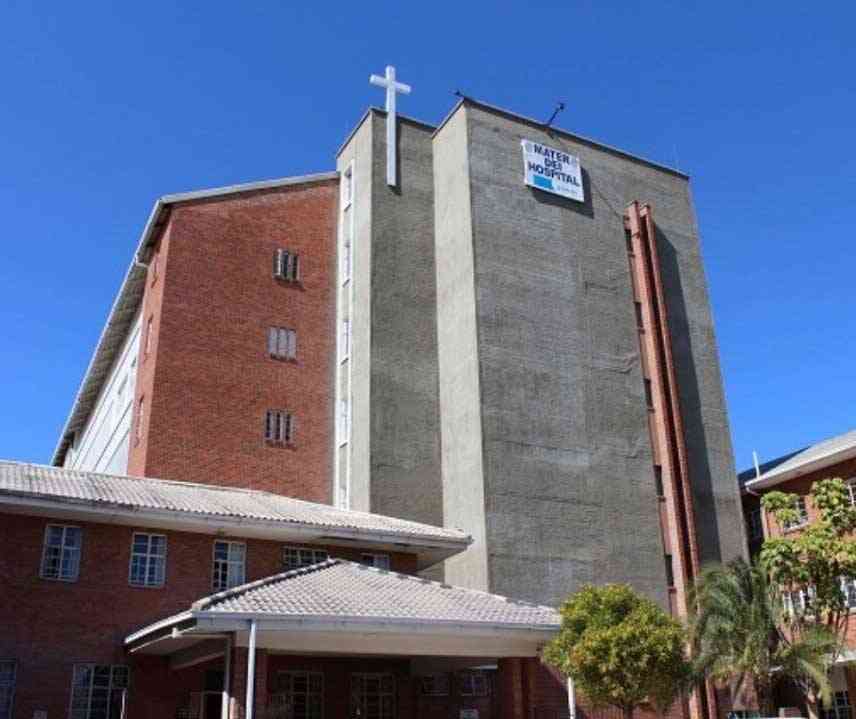
The High Court in Bulawayo has ordered the Zimbabwe Revenue Authority (Zimra) to issue duty rebate certificates for equipment bought by the Mater Dei Hospital Trust donated to the hospital.
Zimra had refused to issue the certificate in respect of the consignment of goods and equipment that the private health institution's trust received as a donation.
Mater Dei filed a High Court application seeking an order compelling the tax collector to issue it rebate certificates, citing Zimra and the Commissioner — Customs and Excise as respondents.
Bulawayo High Court judge Justice Mpokiseng Dube ruled in favour of Mater Dei after hearing arguments from both parties.
“Through the entire pleadings and oral arguments in court, it is not disputed that the type of goods imported is approved by the 2nd respondent.
“The goods are fully donated. They are imported by Mater Dei Trust, an association previously approved by the 2nd respondent to be doing charitable work,” Justice Dube ruled.
The judge said there was no good cause shown for the commission to see things differently, adding that the interpretation of the law it sought to rely on did not support its standpoint.
“Accordingly, it is ordered that the respondents’ decision to deny the applicant duty rebate certificates in terms of section 124 of the Customs and Excise (General) Regulations, 2001, dated: (a) 27 April 2023; and (b) 24 March 2023; be and are hereby reviewed and set aside.”
- Revisiting Majaivana’s last show… ‘We made huge losses’
- Edutainment mix: The nexus of music and cultural identity
- ChiTown acting mayor blocks election
- Promoter Mdu 3D defends foreigners 30 minute set
Keep Reading
The trust runs Mater Dei Hospital in Bulawayo and is a charitable non-profit organisation established in 1998 as a member of the Zimbabwe Association of Church-Related Hospitals.
The commissioner had rejected the Mater Dei Trust’s appeal against the denial of duty rebate certificates after the latter received donations of hospital equipment and consumables from non-Zimbabwean entities.
“From time to time, the applicant receives such donations of hospital equipment from foreign entities, including the four consignments which are in dispute. ZACH applied on behalf of the applicant for a duty rebate to be granted on each of the four consignments,” the court papers read.
“On 2 March 2023, the trust’s applications in respect of the first three consignments were denied by the station manager, Customs and Excise, Bulawayo, on the basis that the applicant was a ‘commercial entity’ and not a ‘welfare entity’.”
The trust, on March 7, 2023, appealed to Zimra regional manager at the Bulawayo port.
The court heard that on March 23, 2023, the regional manager rejected the appeal, saying the applicant was not a registered private voluntary organisation.
The manager indicated that the rebate had not been approved by the Commissioner of Customs and Excise.
The trust appealed to the commissioner on April 27, 2023, who also rejected.
Meanwhile, when the fourth consignment was being shipped to the applicant, a request for a duty rebate certificate was made to the station manager on March 24, 2023, and it was also rejected.
The trust appealed the fourth rejection to the commissioner, who rejected before taking the matter to court for a review of the decisions made by Zimra and the commissioner.
In its opposing affidavit, Zimra said citing of the commissioner as a party to the proceedings was a nullity at law, submitting in limine that the commissioner had been wrongly cited and was a mere employee.
However, the trust contended that it was crucial to cite the commissioner as the decision- maker so that he has an opportunity to justify his or her decision.
Justice Dube said it was common cause and admitted by the respondents that in the past the commissioner granted the trust rebate under similar circumstances.
He said Zimra's lawyer argued that the commissioner carried out investigations and found out that it had made a mistake by granting such duty rebates.
The judge said the commissioner’s decision in casu was exercised in a manner that contravened the need to act lawfully, reasonably and fairly.
“I am convinced that the respondents have created an expectation and a legitimate one for that matter. Legality of seeking to treat Mater Dei Hospital as a separate legal persona from its founding trust,” Justice Dube said.
The judge ruled that the commissioner and counsel merely relied on their personal knowledge that “Mater Dei is a private hospital that charges its clients and, therefore, it is a ‘commercial entity’, an argument that is simplistic and does not go to the tenor of legal reasoning.”









